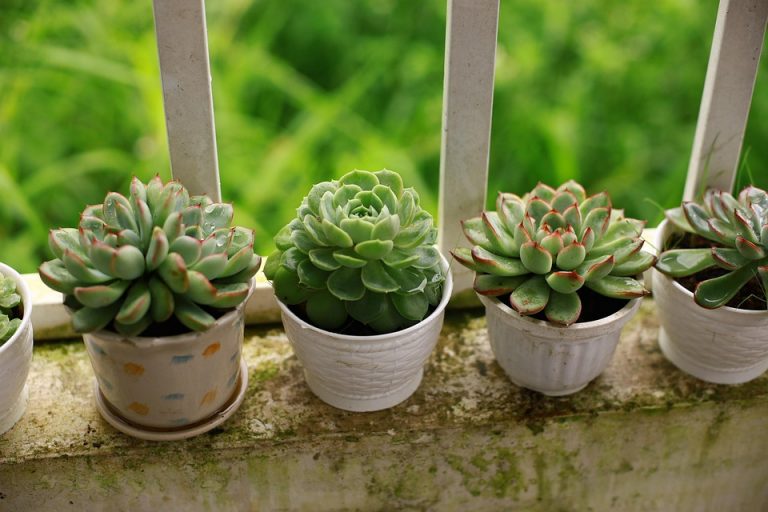Embracing a zero waste home is simpler than you think. In a world flooded with disposable items, it’s time to reclaim your space and your conscience. You might be wondering, “What does zero waste even mean?” It’s about reducing the amount of trash you produce by rethinking your consumption habits. Not only is it good for the planet, but it can also be good for your wallet and your well-being. If you’re ready to dive into a more sustainable lifestyle, here are ten easy ideas that will transform your home into a zero waste haven.
Contents
- Why Go Zero Waste?
- 1. Ditch Single-Use Plastics
- 2. Create a Compost Bin
- 3. Shop in Bulk
- 4. Make Your Own Cleaning Products
- 5. Embrace Second-Hand Shopping
- 6. Choose Sustainable Fashion
- 7. Grow Your Own Herbs and Vegetables
- 8. Switch to Reusable Menstrual Products
- 9. Opt for Digital Over Paper
- 10. Host a Zero Waste Party
- Bottom Line
- FAQs
Why Go Zero Waste?
Making the shift to a zero waste lifestyle isn’t just a trend; it’s a necessity. Landfills are overflowing, oceans are polluted, and wildlife is suffering. By reducing waste, you’re not only helping the environment but also fostering a sense of community and responsibility. You’ll be amazed at how small changes can make a huge impact on your life and the world around you.
1. Ditch Single-Use Plastics
Your first step toward a zero waste home is to eliminate single-use plastics. These pesky items contribute massively to environmental degradation. Instead of grabbing a plastic water bottle or a takeout container, invest in reusable alternatives. Think stainless steel water bottles, glass food containers, and beeswax wraps.
Benefits:
- You’re cutting down on pollution.
- You save money in the long run.
- You feel empowered making eco-friendly choices.
2. Create a Compost Bin
Did you know that nearly 30% of what we throw away can be composted? Creating a compost bin is a fantastic way to reduce waste while enriching your garden. It’s as simple as designating a corner of your yard or using a compost bin. Toss in your fruit and vegetable scraps, eggshells, and coffee grounds.
Benefits:
- You enrich your soil naturally.
- You reduce methane emissions from landfills.
- You create a cycle of life in your backyard.
3. Shop in Bulk
When it comes to shopping, bulk is your best friend. Many grocery stores now offer bulk bins for grains, nuts, and spices. Bring your own containers or cloth bags and fill them up. You’ll find that buying in bulk not only reduces packaging waste but often saves you money, too.
Benefits:
- Less packaging means less waste.
- You can buy exactly what you need.
- You discover new and exciting ingredients.
4. Make Your Own Cleaning Products
Commercial cleaning products are often loaded with chemicals and come in plastic packaging. Why not whip up your own cleaning solutions? With just a few simple ingredients like vinegar, baking soda, and essential oils, you can create effective, eco-friendly cleaners that are safe for your family and the planet.
Benefits:
- You know exactly what’s going into your home.
- It’s cheaper than store-bought cleaners.
- You reduce plastic waste significantly.
5. Embrace Second-Hand Shopping
Thrift stores, consignment shops, and online marketplaces are gold mines for second-hand treasures. Whether you’re looking for clothes, furniture, or decor, you can find unique items that have stories behind them. Plus, you’re giving these items a second life and keeping them out of landfills.
Benefits:
- You save money while finding one-of-a-kind pieces.
- You reduce demand for new products.
- You support local charities and businesses.
6. Choose Sustainable Fashion
Fast fashion is a major contributor to waste and pollution. Instead of buying cheap, trendy clothing that falls apart after a few wears, consider investing in high-quality, sustainable fashion. Look for brands that prioritize eco-friendly materials and ethical production practices.
Benefits:
- You support ethical brands and workers.
- Your wardrobe becomes timeless and sustainable.
- You reduce textile waste significantly.
7. Grow Your Own Herbs and Vegetables
If you have even a small patch of land or a sunny windowsill, why not try growing your own herbs and vegetables? It’s rewarding, fun, and eliminates the plastic packaging that comes with store-bought produce. Plus, homegrown food tastes infinitely better!
Benefits:
- You save money on grocery bills.
- You enjoy fresh produce at its peak.
- You connect with nature and your food source.
8. Switch to Reusable Menstrual Products
Menstrual products create a staggering amount of waste, from tampons to pads. Switching to reusable menstrual products like menstrual cups or cloth pads can drastically reduce your waste footprint. They are often more comfortable, cost-effective, and environmentally friendly.
Benefits:
- You significantly reduce landfill waste.
- You save money over time.
- You promote better menstrual health.
9. Opt for Digital Over Paper
In an age of technology, there’s no need to let paper clutter your home. Opt for digital bills, e-tickets, and online subscriptions. If you do need to print, use recycled paper and ensure you recycle it when you’re done.
Benefits:
- You reduce paper waste in your home.
- You keep your space organized and clutter-free.
- You embrace a more modern, efficient lifestyle.
10. Host a Zero Waste Party
Taking the plunge into a zero waste lifestyle doesn’t have to be a solo journey. Invite friends over for a zero waste party! Share ideas, swap items, and enjoy snacks made from bulk ingredients. It’s a fun way to inspire others and build a community around sustainability.
Benefits:
- You create a supportive network.
- You share knowledge and resources.
- You make sustainability a social activity.
Bottom Line
Embracing a zero waste home isn’t just about reducing waste; it’s about living intentionally. Each small step you take contributes to a healthier planet and a more fulfilling life. Your choices matter, and they can inspire those around you. So, why not start today? Choose one of these simple ideas and watch how it transforms your home and your heart.
FAQs
What is zero waste?
Zero waste is a lifestyle aimed at eliminating waste by rethinking how we consume and dispose of products.
How can I start my zero waste journey?
Begin by making small changes, like eliminating single-use plastics or creating a compost bin.
Is zero waste expensive?
Not necessarily. While some sustainable products may have a higher upfront cost, they often save you money in the long run.
Are you ready to make a change? Start with one of these ideas, and watch your life transform into a more sustainable and rewarding experience.








